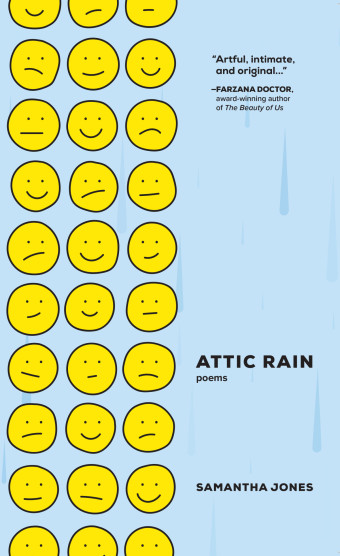Nikki Reimer is a multimedia artist, a writer, and a chronically ill neurodivergent Prairie settler. She says that her new collection of poetry, No Town Called We, is for anyone who finds comfort in melancholy.

- No Town Called We
- Nikki Reimer
- Talonbooks
- $18.95 Paperback, 99 pages
- ISBN: 978-17-72015-49-2
“The book is an attempt to think through various difficulties, including, but not limited to, seeking to define and be part of a community, climate crisis, death of one’s elders, pandemic, chronic illness,” the Mohkinstsis/Calgary-based poet says of her fourth book.
“Though the book’s psychogeography resides in Alberta and my own aging, sick body, the complaints it brings forth are, I should think, relatable. Subjectivity inside the poems is slippery, which enacts the impossibility of true solidarity in our late neoliberal moment.”
Reimer relied on a number of texts during the writing of No Town Called We, including ryan fitzpatrick’s Coast Mountain Foot, Danielle LaFrance’s Just Like I Like It, Roger Farr’s After Villon, Lisa Robertson’s Boat, and Simon Brown’s aboveground press chapbook oh the iffy night. Oliver Sacks’s Migraine and Lisa Robertson’s The Weather were also essential.
She owes a special debt to LaFrance, who she describes as a friend, comrade, and interlocutor.
“Danielle substantively edited the book and helped tease out and shape No Town’s threads, as the mess of poems was initially more confessional diaristic heartbreak, less intentional,” notes Reimer.
Once she had a better sense of the shape of the collection, a goal emerged: to poetically move through and interrogate common spaces of inquiry.
Those spaces include what Reimer characterizes as “the idea of the city, the idea of the poet, and the oil and gas culture – what some have termed petrostate – of southern Alberta, and alienation.”
Reimer worked on these poems from 2018 to 2022 and says that she was constantly grasping after the communal “we.”

“The city is always and increasingly a site of hostility for anyone on any vector of marginalization,” says Reimer. “It’s increasingly a site of hostility for all but the wealthy. It’s hostile to disability. I was theorizing, from the subjective viewpoint of my chronically ill body, that the city, too, is chronically ill. And I was struggling, bodily and mentally, within that space.
“A concern and conceit of the book is the slippery subject, thus scare quotes around ‘I’ and ‘we.’ The poems – or the writer – chase after the lost collective possibilities of their youth.”
Reimer returned to the same questions over and over.
“How do you and I relate? How might we commune? Can we enjoy our sick prostrated time? What does it mean to occupy a land? What duty of care do we owe each other? And poet, what have you done with the moon?”
There have been some constants in her writing process throughout Reimer’s career.
“I have largely been driven by what I see as unjust or what makes me mad or sad (affect as method of composition), which has then transmogrified into an exploration of the language of whatever the object of focus is. I’m often interested in manipulating found language to arrive at a sort of randomly assigned lyric of juxtaposition,” Reimer says.
Like most writers, Reimer has a full-time job in addition to her vocation as a poet.
“As poets under late-late-capitalism, we are always stealing time to write where and when we can.”













